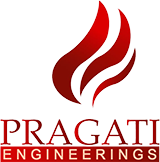
Fire Engineers are professionals who specialize in the design, analysis, and evaluation of fire protection systems, structures, and equipment. They work to prevent fires and minimize their impact on people, property, and the environment. Fire engineers typically have a background in engineering, fire science, or a related field and may work in a variety of settings, including government agencies, consulting firms,
and private companies.
The primary role of fire engineers is to identify fire hazards and assess the risk of fire in buildings, structures, and other environments. They use their knowledge of fire science, building codes, and safety regulations to design and implement fire protection systems, such as fire alarms, sprinklers, and fire suppression systems. Fire engineers also conduct fire safety inspections and develop emergency
response plans to minimize the impact of fires.
Fire engineers work closely with other professionals, such as architects, contractors, and building owners, to ensure that fire protection systems are integrated into the design and construction process. They also collaborate with fire departments and other emergency responders to develop and test emergency response plans.
Overall, fire engineers play a crucial role in protecting people and property from the devastating effects of fires.
Fire protection refers to the measures taken to prevent and mitigate the effects of fires. This can include things like fire suppression systems, fire alarms, fire doors, and fire drills. Fire protection is important because fires can cause significant damage to property, and can also lead to injury or loss of life.
Execution, on the other hand, refers to the process of carrying out a plan or task. In the context of fire protection, execution might involve implementing fire safety measures, such as installing fire extinguishers or training employees on fire safety protocols. It could also involve responding to a fire emergency and carrying out an evacuation plan.
In order for fire protection measures to be effective, they must be implemented and executed properly. This means ensuring that fire safety equipment is in good working order, that employees are properly trained on fire safety protocols, and that emergency response plans are regularly reviewed and updated. Effective execution of fire protection measures can help prevent fires from occurring, or minimize their
impact if they do occur.
